Diwali, known as the Festival of Lights, is a time of joy, reflection, and celebration for millions worldwide. This vibrant festival marks the triumph of light over darkness, knowledge over ignorance, and good over evil. As one of the most anticipated events in the Hindu calendar, Diwali brings families and communities together to celebrate, remember, and honor age-old traditions while incorporating modern touches. In recent years, Diwali has become a global celebration, with people from diverse backgrounds participating in the festivities. It is a time for cultural exchange, understanding, and harmony. This year, Diwali will be celebrated on Thursday, October 31, 2024 and Diwali Celebrations 2024https://theunitedindian.com/ promises to be a spectacular event, filled with excitement, spirituality, and unique innovations.
What Is Diwali? A Brief Overview of Its Significance
The Origins of Diwali
Diwali, or Deepavali, has its roots in ancient India and is celebrated across religions, including Hinduism, Sikhism, Jainism, and Buddhism. Each tradition honors different legends associated with the festival, ranging from the return of Lord Rama to Ayodhya after 14 years in exile to the Jain celebration of Lord Mahavira’s nirvana.
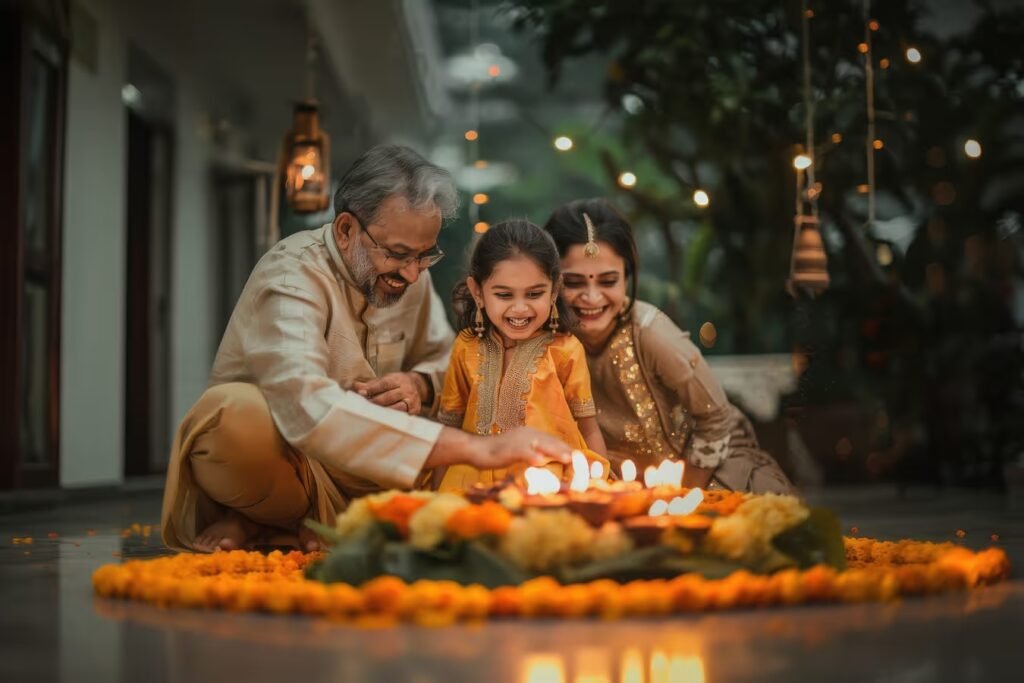
The Five Days of Diwali Festivities
Diwali is celebrated over five days, each with its own meaning and customs:
- Dhanteras: The first day, associated with wealth and prosperity, focuses on cleaning homes and purchasing valuable items.
- Naraka Chaturdashi (or Choti Diwali): A day for ridding oneself of evil and celebrating the triumph over demonic forces.
- Lakshmi Puja: The main day of Diwali, when families worship Goddess Lakshmi, the deity of wealth and prosperity.
- Govardhan Puja: Honoring Lord Krishna’s protection of the villagers of Vrindavan.
- Bhai Dooj: A day dedicated to the bond between siblings, particularly brothers and sisters.
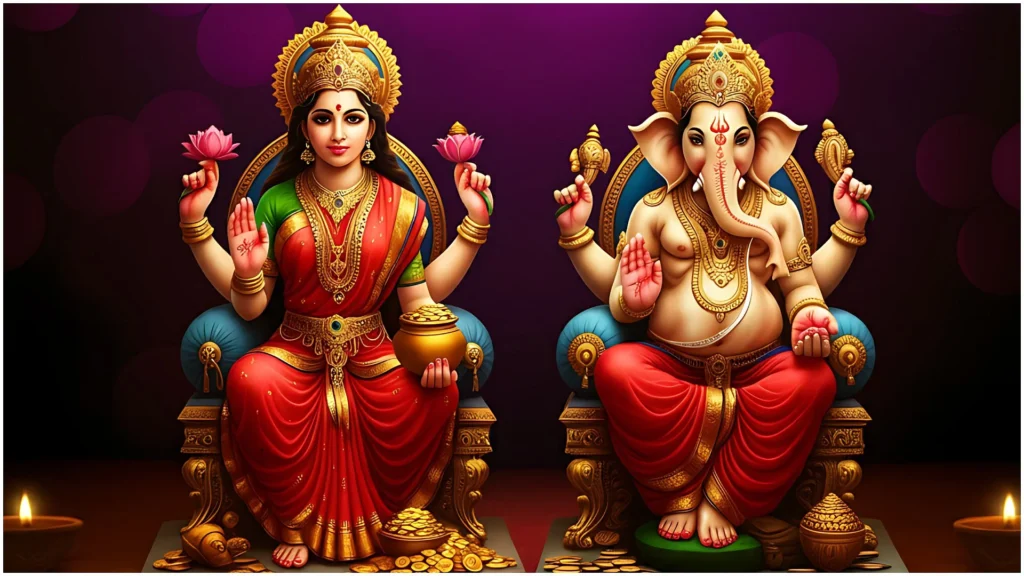
How Diwali Celebrated Across India ?
Unique Diwali Traditions in Different Indian States
In India, each region adds a unique flavor to Diwali 2024. The festival is celebrated differently across states, reflecting the rich diversity of Indian culture:
- North India: Known for grand firework displays and elaborate Lakshmi Puja ceremonies, North India’s Diwali celebrations are vibrant and full of spectacle.
- West Bengal: Here, Diwali is celebrated as Kali Puja, with devotees worshipping the fierce Goddess Kali instead of Lakshmi.
- South India: Diwali is known as Deepavali and celebrated in the morning with early pujas, traditional attire, and delectable sweets.
- Maharashtra and Gujarat: Communities celebrate with rangoli art, diyas (lamps), and by exchanging sweets and gifts.
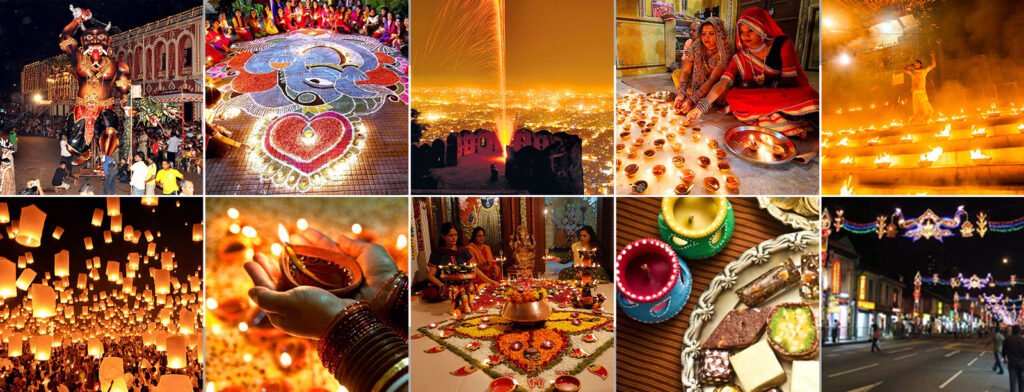
Traditional Diwali Rituals and Their Meanings
Lakshmi Puja: Invoking Wealth and Prosperity
On the third day of Diwali, families perform Lakshmi Puja to welcome prosperity into their homes. Goddess Lakshmi is worshipped with offerings of flowers, sweets, and prayers, symbolizing the family’s wish for abundance and wealth.
Lighting of Diyas: Symbolizing the Triumph of Light over Darkness
Diyas, or oil lamps, are lit to ward off darkness and invite positivity. The warm glow of diyas across homes and streets is a symbol of hope, peace, and happiness, filling the atmosphere with a sense of unity and joy.
Creating Rangoli Patterns: Inviting Positive Energy
Rangoli designs, crafted with colored powders and flowers, are made at the entrance of homes to welcome guests and deities. These intricate patterns are believed to attract positive energy and good luck.
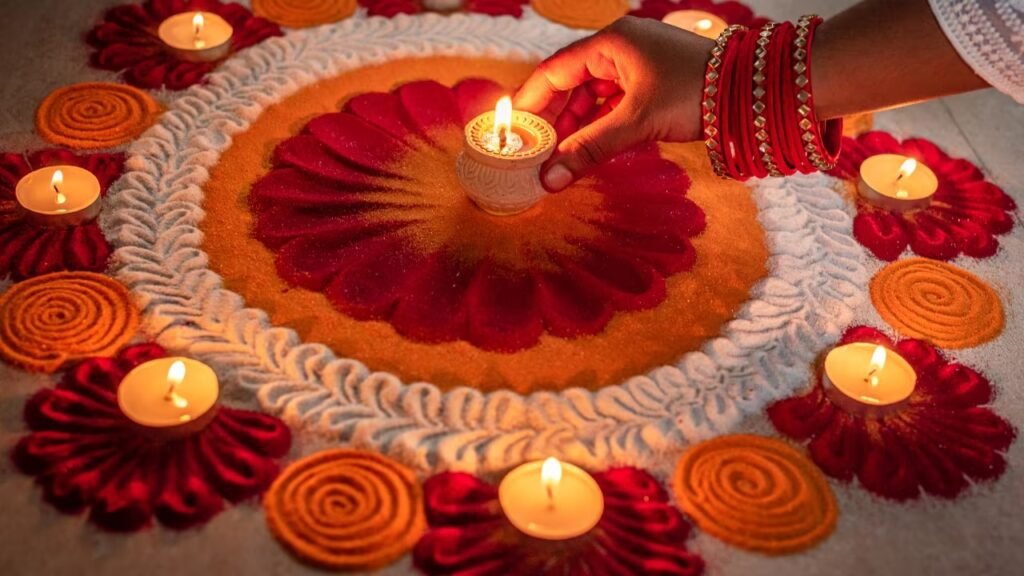
Sweets and Festive Delicacies of Diwali 2024
The Sweet Essence of Diwali
No Diwali is complete without a lavish spread of sweets, or mithai, that symbolizes love, togetherness, and the festive spirit. Some popular sweets enjoyed during Diwali include:
- Ladoo: These round sweets, made from ingredients like gram flour, sugar, and ghee, are a Diwali staple.
- Barfi: A rich and creamy confection often flavored with pistachios, almonds, or coconut.
- Jalebi: This deep-fried treat soaked in sugar syrup is enjoyed across North India.
Modern Twists to Traditional Sweets
In recent years, modern takes on traditional sweets have gained popularity, including chocolate-filled ladoos, matcha-flavored barfi, and even sugar-free alternatives for health-conscious celebrants.
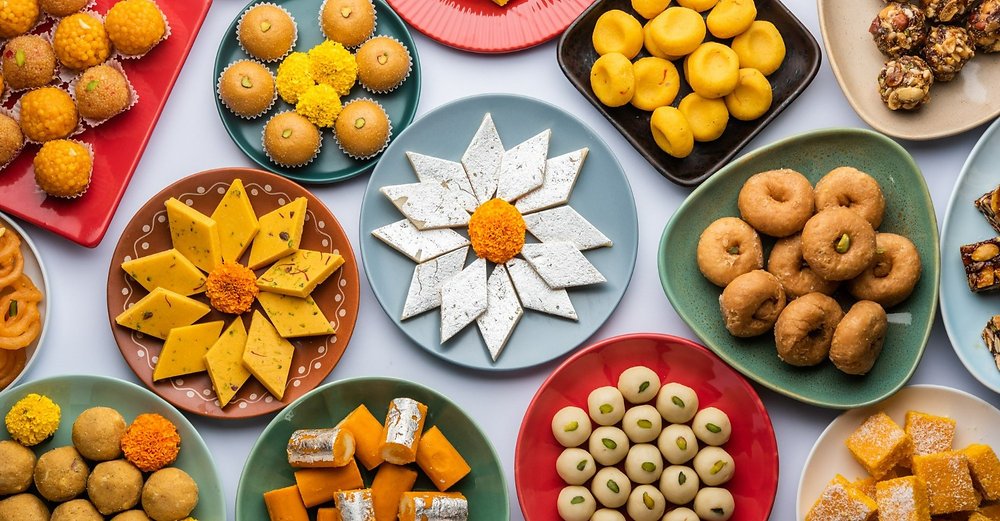
Diwali Fashion 2024
Ethnic Wear: A Blend of Tradition and Style : Diwali is an opportunity for everyone to adorn themselves in the finest ethnic attire. In 2024, sustainable fashion has taken center stage, with a preference for clothes made from organic fabrics and natural dyes.
Diwali Gifts: Embracing Personalization and Sustainability
The tradition of exchanging gifts strengthens relationships. During Diwali 2024, we can see that gifting trends are focusing on personalization, with items like:
- Customized Gift Hampers: Curated gift sets with a mix of sweets, candles, and personalized items.
- Eco-Friendly Gifts: Reusable items, bamboo products, and plants as green alternatives to traditional gifts.
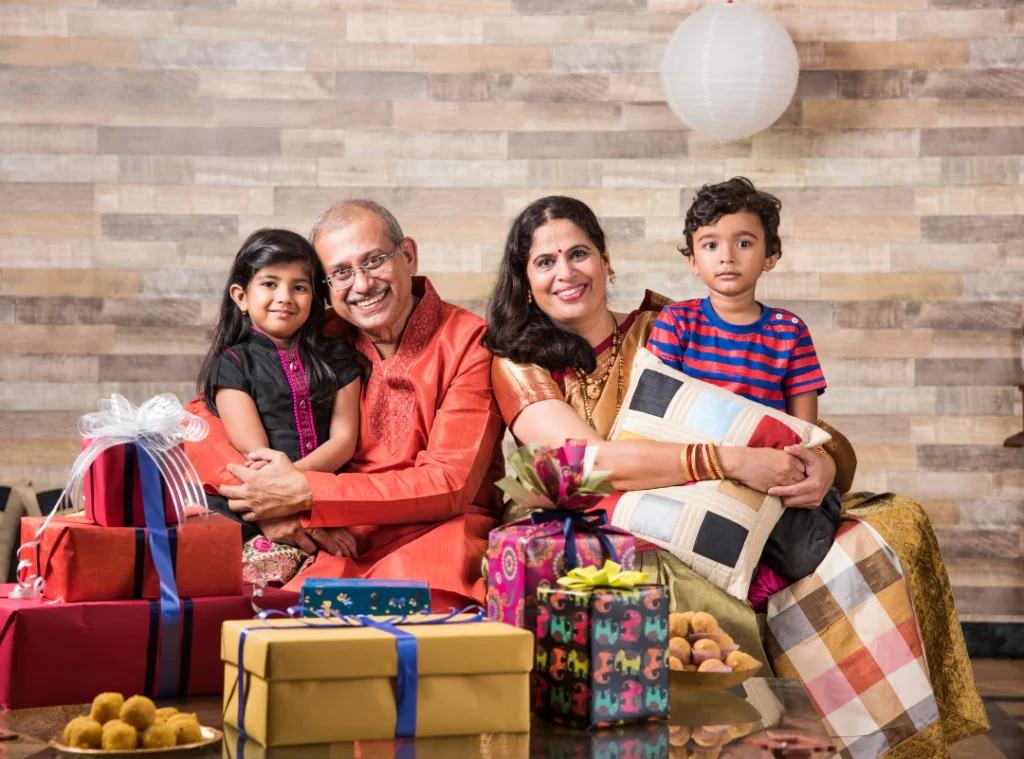
Why Diwali Matters in Today’s World
Promoting Unity and Social Harmony
Diwali 2024 stands as a powerful reminder of unity in diversity, as people from all walks of life come together to celebrate. This festival promotes social harmony and encourages individuals to come together to spread love, positivity, and peace.
Inspiring a Balance Between Tradition and Innovation
As Diwali embraces both ancient traditions and modern sensibilities, it exemplifies the harmony between cultural heritage and contemporary practices. In 2024, Diwali celebrations reflect a desire to honor timeless customs while embracing change, making it a meaningful celebration for all generations.
Final Thoughts: Diwali 2024 – A Celebration for the Heart and Soul
Diwali is more than just a festival; it’s a celebration of life, family, and community. In 2024, as we celebrate Diwali, the emphasis is on making it a sustainable, inclusive, and joy-filled experience. Through the spirit of giving, gratitude, and unity, Diwali continues to inspire millions, lighting up hearts and homes around the world.











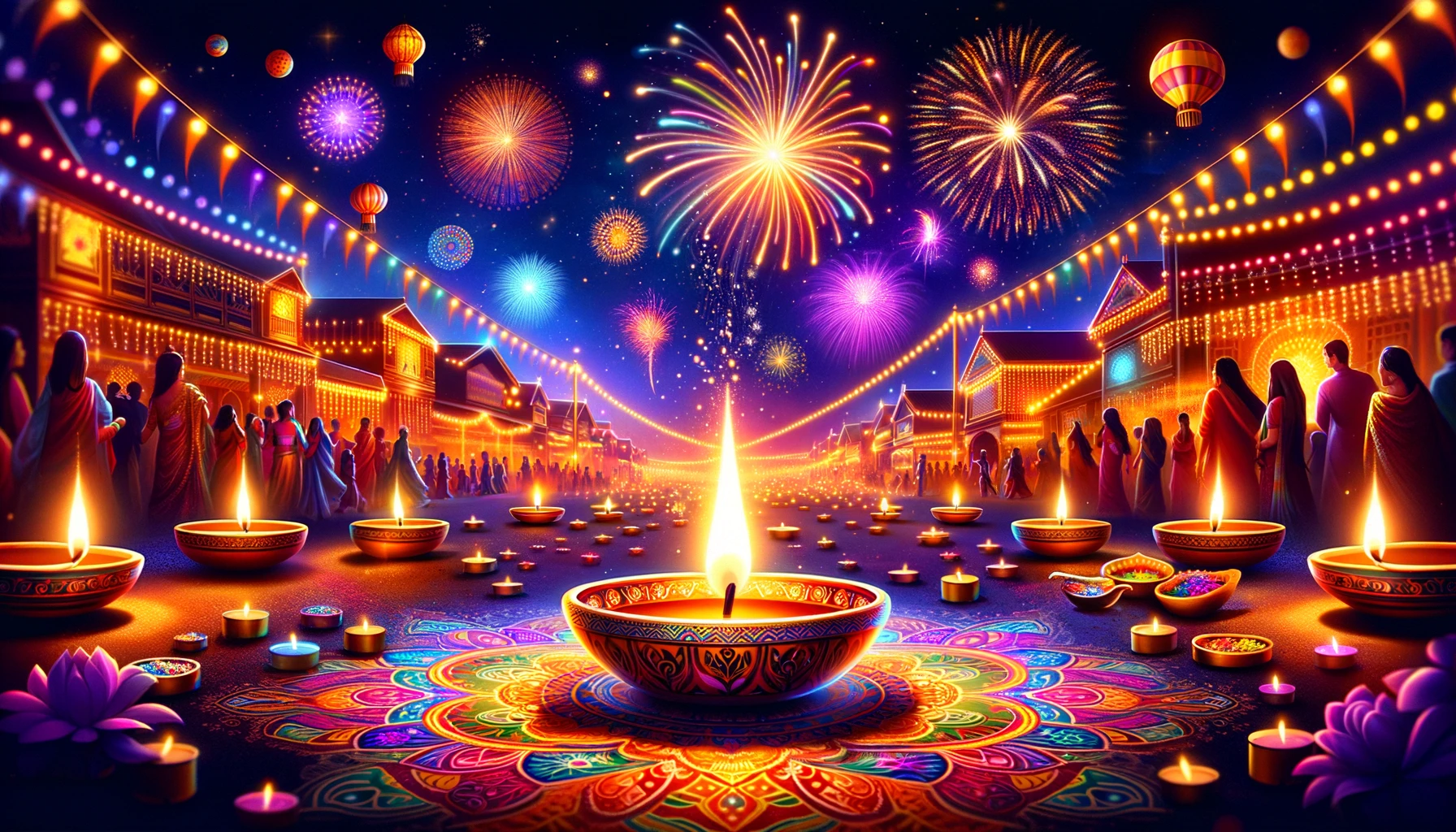

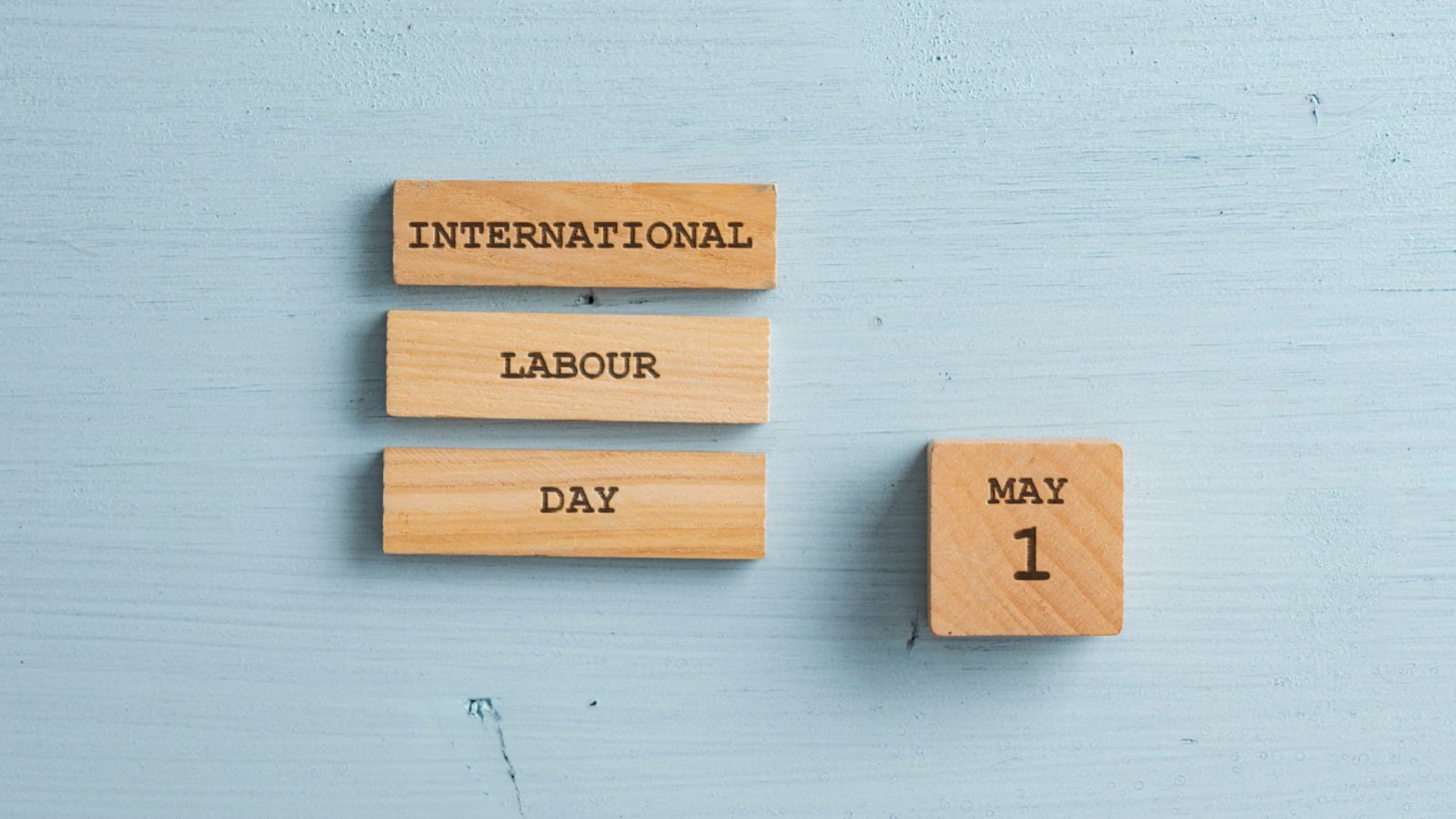


Glue Dream strain There is definately a lot to find out about this subject. I like all the points you made
Noodlemagazine You’re so awesome! I don’t believe I have read a single thing like that before. So great to find someone with some original thoughts on this topic. Really.. thank you for starting this up. This website is something that is needed on the internet, someone with a little originality!
YouJizz Your site is great, but I recommend looking into the spelling in certain posts. A number of them contain spelling mistakes, which can be annoying, but I’ll surely come back again.